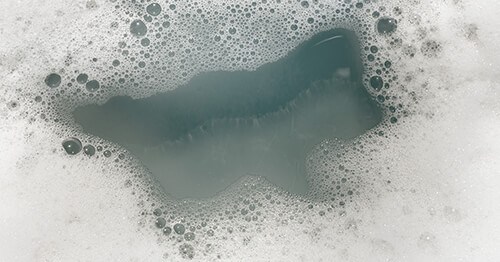My Guide to Discharge Emergence in the Bathtub
My Guide to Discharge Emergence in the Bathtub
Blog Article
What are your thoughts with regards to Water Coming up Bathtub Drain?

Sewer backup in the bathtub can be an upsetting and unsanitary trouble for any type of homeowner. Not only is it troublesome, but it also poses significant health risks and indicates underlying issues with the plumbing system. Recognizing why sewer is turning up via the bath tub is essential for taking proper action to attend to the trouble effectively.
Intro to the Concern
Common Factors for Sewage Backup
Obstructions in the Sewer Line
One of one of the most common causes of sewage backup is a blockage in the sewage system line. This can occur due to the build-up of debris, grease, or foreign items in the pipelines, protecting against correct circulation and creating sewer to back up into your bathtub.
Tree Origin Invasion
Tree origins seeking moisture and nutrients can penetrate sewer lines with small cracks or joints. With time, these roots can expand and increase, triggering substantial damage to the pipelines and bring about sewage back-up concerns.
Comprehending the Trouble
When sewage draws back up into the tub, it's a clear sign of an issue with the water drainage system. The wastewater that must be flowing away from your home is rather finding its back into your home, which can bring about considerable damages and carcinogen.
Potential Causes
Numerous elements can add to sewer back-up in the bath tub. From blockages in the sewer line to concerns with the plumbing framework, determining the origin is vital for discovering a solution.
Aging Facilities
Older homes may have outdated plumbing systems that are a lot more vulnerable to corrosion, splits, and damage. As pipelines age, they end up being more vulnerable to leakages and blockages, boosting the likelihood of sewer backup cases.
Heavy Rainfall or Flooding
During durations of heavy rainfall or flooding, the sewer system might come to be overwhelmed with excess water, causing back-ups and overflows. This can lead to sewer backing up right into tubs and other components inside the home.
Indicators of Sewage Back-up
Foul Odors
Unpleasant odors rising from drains pipes or fixtures, particularly in the bathroom, may show sewage back-up issues. These smells are frequently solid and persistent, signaling an issue that calls for prompt attention.
Slow Draining Fixtures
Tubs, sinks, and commodes that drain gradually or otherwise in any way could be experiencing sewage back-up. If numerous fixtures are impacted all at once, it's likely that the concern stems from a common point, such as the main sewage system line.
Gurgling Noises
Strange gurgling or bubbling sounds originating from drains when water is running in other places in your home are indicative of air entraped in the plumbing system. This air buildup can arise from sewage backup and need to be checked out promptly.
Wellness Dangers Related To Sewage Backup
Contamination of Water Supply
Sewage back-up can contaminate the water system in your house, posing a significant wellness risk to you and your household. Direct exposure to polluted water can cause gastrointestinal issues, skin infections, and other diseases.
Mold and mildew Development
Wetness from sewer backup can produce ideal conditions for mold development in your home. Mold and mildew spores can worsen breathing issues and trigger allergies in delicate people, making prompt cleanup vital.
Spread of Disease
Sewer contains damaging bacteria, infections, and parasites that can cause a series of conditions, including hepatitis, cholera, and gastroenteritis. Entering into contact with sewage or infected surfaces places you at risk of infection.
Tidying up After Sewage Back-up
Sanitation Procedures
Thoroughly sanitize and disinfect influenced locations after sewage backup to remove damaging microorganisms and prevent mold and mildew development. Use ideal cleansing products and protective gear to ensure secure and effective cleaning.
Reconstruction of Impacted Areas
Fix any kind of damage to flooring, wall surfaces, or components brought on by sewer backup. Depending upon the degree of the damages, you might require to change carpeting, drywall, or various other products to restore your home to its pre-loss condition.
Immediate Actions to Take
Shutting Off Water
In case of sewage backup, it's vital to switch off the water system to avoid further contamination and damages. Find the main water shutoff valve in your home and closed it off until the concern can be solved.
Getting In Touch With a Professional Plumber
Managing sewage back-up is not a DIY task. Call a certified plumber with experience in taking care of sewage-related issues to examine the circumstance and execute necessary repair services or clean-ups.
Preventing Contact with Infected Water
Till the sewage back-up is resolved, prevent contact with contaminated water to stop the spread of germs and pathogens. Wear safety gear if you have to remain in the afflicted location and clean your hands extensively afterward.
Preventive Measures
Regular Maintenance of Sewage System Lines
Schedule normal assessments and upkeep of your sewage system lines to identify and resolve prospective concerns before they intensify right into major troubles. This can consist of cleaning out debris, evaluating for tree root intrusion, and repairing any type of damaged pipes.
Setting Up Backwater Valves
Take into consideration mounting bayou valves in your plumbing system to avoid sewage from flowing back into your home during durations of heavy rainfall or flooding. These shutoffs automatically close when water starts backing up, securing your property from contamination.
Appropriate Disposal of Family Waste
Stay clear of flushing anything aside from bathroom tissue and human waste down the commode to prevent clogs and clogs in the sewage system line. Dispose of oil, oil, and other household chemicals correctly to reduce the danger of plumbing issues.
Why Is Water Backing Up in My Bathtub When I Flush My Toilet?
What to do about a sewer line clog
First, don’t bother with plunging. No amount of plunging will dislodge the clog in a sewer line. The clog is too far away. Plungers are for clogs in the toilet itself, not the sewer line. Plus, the most likely causes of a sewer clog are:
Tree roots Flushed toys or feminine products Grease buildup Those items don’t move easily. And in the case of tree roots, the roots need to be cut out of the pipe and the pipe will need to be repaired.
You’ll need a closet auger. A closet auger is a type of plumber’s snake with a protective cover to keep from scratching the delicate porcelain toilet. If the clog is further down, you may need to remove the toilet or use one of your cleanouts to get to the clog.
We also recommend doing a video inspection of the drain to ensure that the cause of the clog has been completely removed. Otherwise, you could have the same problem again in a few days or weeks.
https://mspplumbingheatingair.com/blog/why-is-water-backing-up-in-my-bathtub-when-i-flush-my-toilet

Do you enjoy more info about Why is There Sewage Coming Up Through the Bathtub? Leave feedback down below. We would be pleased to find out your insights about this blog. In hopes that you visit us again soon. If you appreciated our article plz don't forget to pass it around. Thank you for your time spent reading it.
Go Deal
Report this page